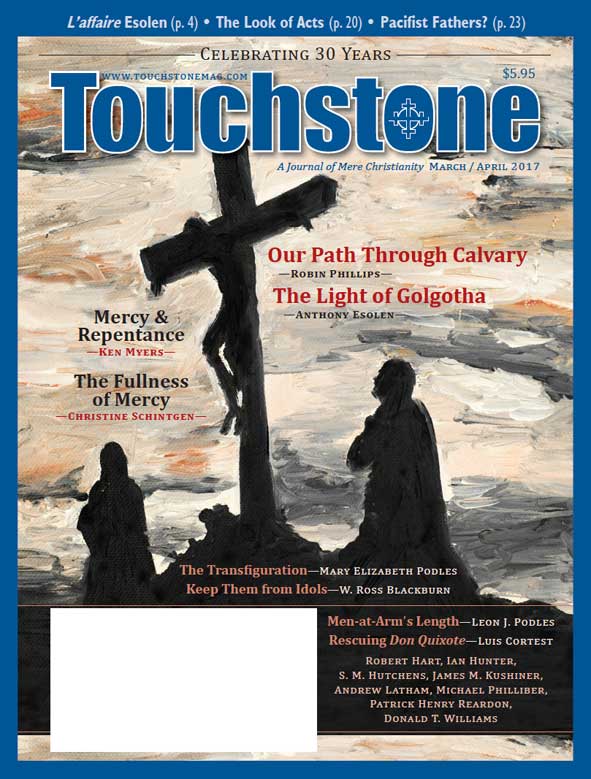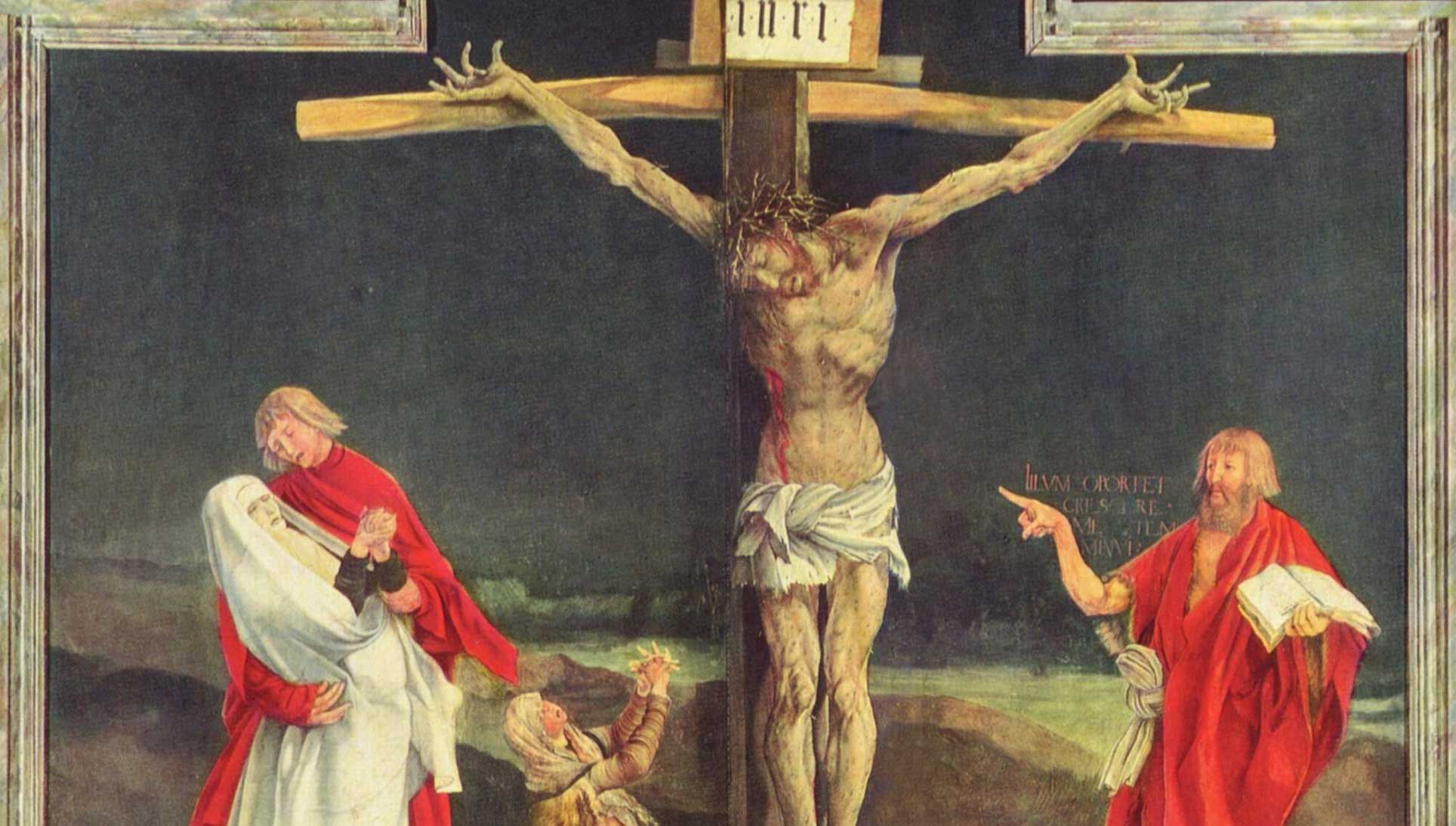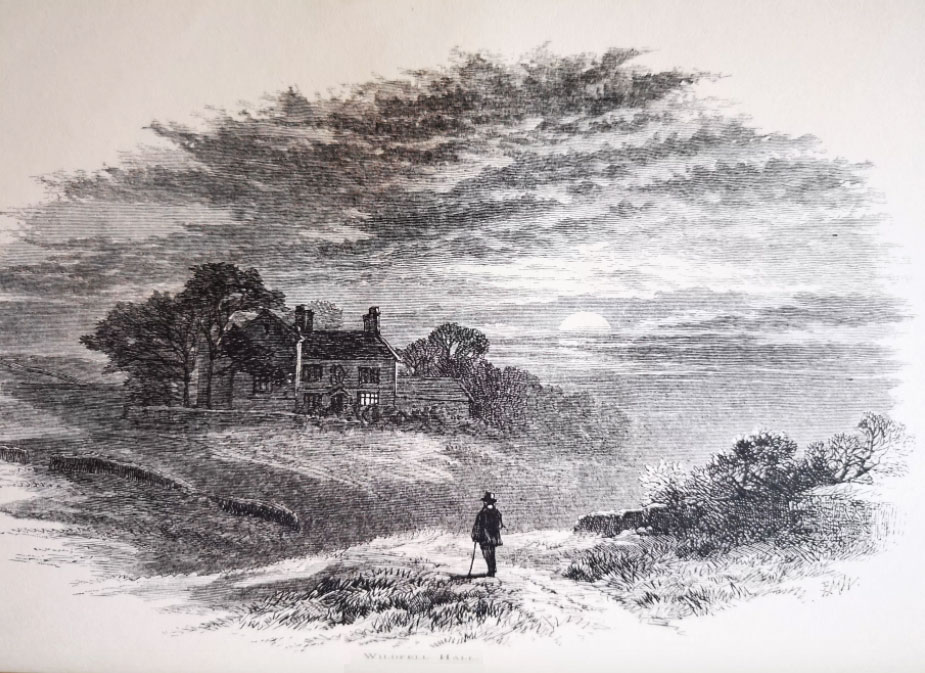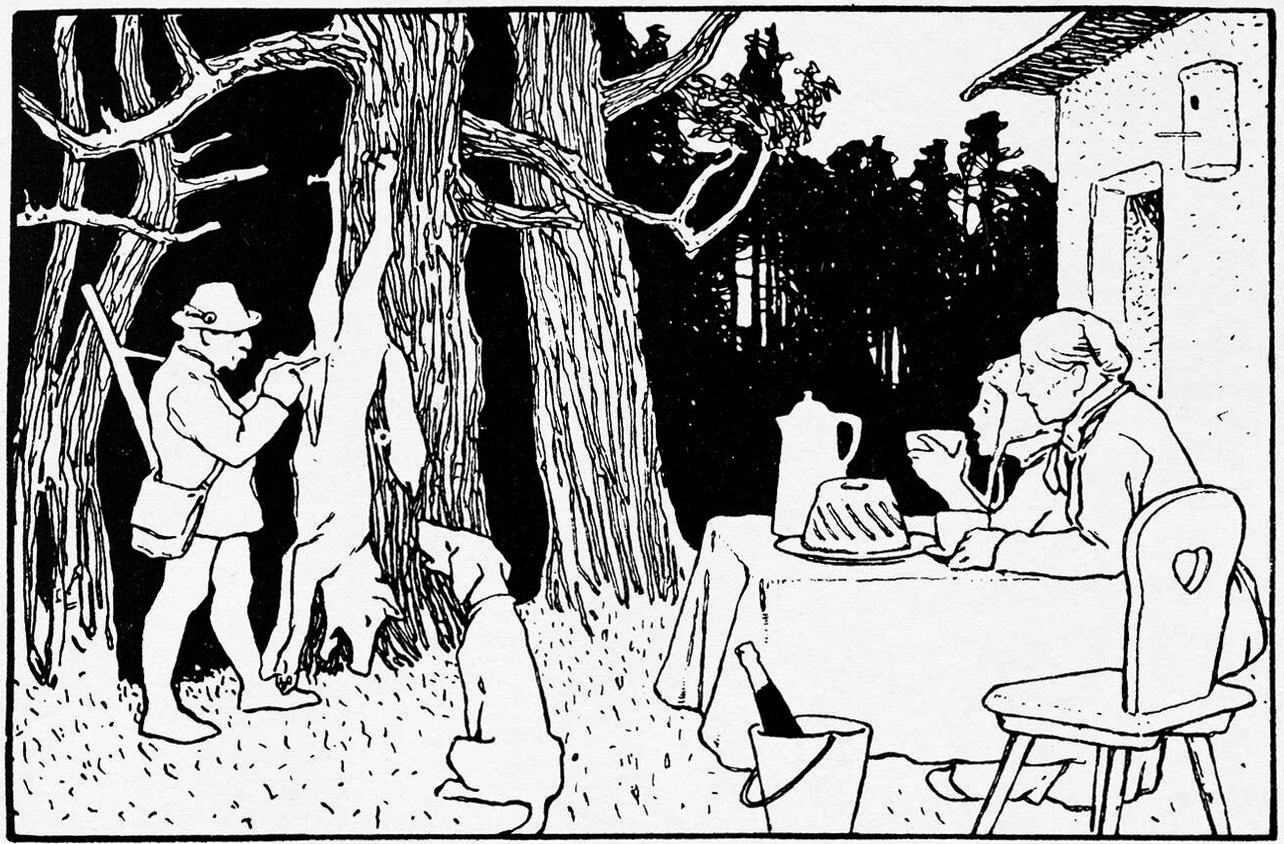View
War & Peace After Jesus
Andrew Latham on Pacifism Today & in the Early Church
Following a gathering last April in Rome sponsored by Pax Christi International, the Pontifical Council for Justice and Peace, and a number of other international Catholic organizations, educators and activists from all over the world issued a statement calling, among other things, for the Catholic Church to "no longer use or teach 'just war theory.'" In its place, they proposed, the church should commit itself to "a Just Peace approach based on Gospel nonviolence." Specifically, the conference participants called for Pope Francis to issue an encyclical on nonviolence, integrate gospel nonviolence into the life and work of the church, promote nonviolent practices and strategies, and initiate a global conversation on nonviolence.
Although the concluding conference statement does not mention it explicitly, one of the main arguments behind this call to abandon the Catholic just war tradition and embrace in its place the centrality of gospel nonviolence is the claim that, before its "Constantinian fall," the church uniformly preached and practiced an ethic of gospel nonviolence. Indeed, in the run-up to the conference, Terrence Rynne, professor of peace studies at Marquette University and one of the conference participants, published an essay in the online version of the National Catholic Reporter arguing in favor of abandoning Catholic just war theory on several grounds. Among them was the assertion that the early church—that is, the church as it existed prior to the Constantinian settlement—proved that an absolute commitment to nonviolence is not only desirable (in the sense that it reflects the true teachings of Christ), but practical as well. As he put it, for "the first three-plus centuries of the early Church, Christians followed the nonviolent, positive way taught by Jesus. They demonstrated that it was not dreamy idealism, but politically effective."
According to Professor Rynne, the witness of the early Christians through nonviolent resistance and martyrdom was so compelling that it ultimately resulted in the conversion of the entire Roman Empire to the Christian faith. He concluded from this that nonviolence and "positive peace" should replace Catholic just war theory as basic church teaching with respect to war and peace.
Looking at the Evidence
What are we to make of this claim? Or, to put it slightly differently, what are we to make of the assertion that during the first three-plus centuries of the Church, Christians embraced nonviolence in both theory and practice?
First, I would argue that such a claim is simply contradicted by the available empirical evidence. Christians, it seems, did not uniformly follow "the nonviolent, positive way taught by Jesus." Indeed, as scholars such as Edward A. Ryan and James Turner Johnson have convincingly demonstrated, the historical record strongly suggests that Christians did in fact serve in the Roman army.
To be sure, although we have no source material to prove it, it is probable that not many Christians served with the legions prior to a.d. 170. Evidence does clearly reveal, however, that after about 170 the Christian presence in the Roman army grew considerably. And while church fathers like Tertullian counseled ardently against Christian service in the legions, they were nevertheless forced to concede that Christians did, in fact, serve in them. Indeed, it is likely that the fathers' increasingly vehement condemnation of Christian service was at least partly a function of the growing numbers of Christian soldiers—due both to Christians enlisting in the Roman army and to Roman soldiers converting to Christianity. In any case, in light of the work of Ryan, Johnson, and others in recent decades, few would now maintain that Christians uniformly avoided military service or that they unvaryingly "followed the nonviolent, positive way taught by Jesus."
Second, it is simply not the case that the fathers of the early Church were pacifists—at least if we define pacifism as a principled belief that any violence, including that of war, is unjustifiable under any circumstances. To be sure, there is little doubt that the fathers opposed Christian service in the Roman army. Whether they did so on the grounds of a deep-seated aversion to the idolatrous practices of the pagan Roman army (most famously argued by John Helgeland), a scripturally derived antipathy to bloodshed (highlighted by Alan Krieder), or respect for the dominical command to love one's enemies and pray for one's persecutors (an argument recently advanced by George Kalantzis), the scholarly consensus is that the early church fathers viewed service in Rome's legions as incompatible with the moral strictures of Christianity.
Tertullian & Origen
Nowhere in the writings of the fathers, however, do we find an aversion to the use of military force as such. Indeed, Tertullian (c. 155–240), ultimately one of the staunchest opponents of Christian military service, actually began his public life celebrating such service. In the Apology (a.d. 197), for example, he emphasizes and applauds the responsible participation of Christians in the public life of Rome—including military service. As he put it in response to claims that Christians were indifferent or inimical to the common good of the empire: "We sail with you and fight alongside you and serve in your army." He also favorably cites the Legio Fulminata, the famed and largely Christian "Thundering Legion" that fought heroically under Emperor Marcus Aurelius. Finally, it is in the Apology that Tertullian first recognizes the necessity of having "brave armies" capable of defending the empire, a theme that would persist in his later writings even as he waxed increasingly hostile to Christian service in the Roman army.
This is not to suggest, of course, that the early Tertullian had no misgivings about such service. Even in the Apology he foreshadows what within the next decade and a half would evolve into a radical rejection of Christian military service on the grounds that life in the Roman army was inherently idolatrous. And by the time he writes On Idolatry (c. 202) and On the Crown (c. 211), his condemnation of Christian service in the Roman army has become both comprehensive and uncompromising. Rather, it is to make the point that neither the early nor the later Tertullian had any objection to the use of military force as a means of preserving the Empire.
These themes are both echoed and further elaborated upon by perhaps the most important of the early church fathers, Origen (c. 185–251). Responding to the criticisms of the pagan philosopher Celsus, Origen argued that although Christians were forbidden to serve in the army, in times of war they nevertheless supported the emperor by "fight[ing] on his behalf, forming a special army—an army of piety—by offering [their] prayers to God." Echoing Tertullian, Origen's antipathy to Christian participation in the Roman army was rooted partly in the inherently idolatrous nature of that army.
But Origen ultimately took his argument in a different direction, opposing Christian military service on the grounds that, just as pagan priests "must keep their hands free from blood, that they may . . . offer the appointed sacrifices," so, too, must the Christian faithful do. The proper role of Christians in times of war, he writes, is to "engage as the priests and ministers of God, keeping their hands pure, and wrestling in prayers to God on behalf of those who are fighting in a righteous cause, and for the king who reigns righteously, that whatever is opposed to those who act righteously may be destroyed!"
In other words, Origen acknowledges that although some wars might be righteous or just, Christians must nevertheless refrain from wielding the material sword. Rather, they are called upon to support the war effort by wielding spiritual arms alone. This is hardly a ringing endorsement of nonviolence. On the contrary, it is a direct precursor to Catholic just war theory.
A Common Conviction
In addition to Tertullian and Origen, a number of other early church fathers and writers—Clement of Alexandria, Hippolytus, Arnobius, Lactantius, Cyprian, and Dionysius of Alexandria—had something significant to say about war and Christian military service. And although these towering figures of the early Church disagreed with each other on some of the particulars, they all shared at least one common—indeed, defining—conviction: that while serving and fighting in the pagan Roman army was incompatible with true Christian discipleship, war itself was a perfectly legitimate, necessary, and even "righteous" instrument of statecraft.
This being the case, the wielding of the spiritual sword by Christians in support of Rome's wars presented no serious problem to the conscience of the early Church. This would seem to contradict the assertion that before its "Constantinian fall," the Church uniformly preached and practiced an ethic of gospel nonviolence. To be sure, the early fathers did enjoin nonviolence on Christians—but not on the empire. In fact, rather than proscribing war, the early fathers, in averring that the empire's wars were just and necessary, actually established the conceptual foundations upon which Ambrose and Augustine would later erect Catholic just war theory—the very theory that some are now demanding be discarded.
No Conciliar Decree
It is perhaps most telling, and certainly worth noting, that the early Church itself, as an ecclesial body, was never pacifist—at least not in the sense that it was dogmatically opposed to war tout court. As Ryan has long since pointed out, the early Church never issued a conciliar decree prohibiting either war or Christian military service. According to Ryan, the Church refrained from banning war because, from the outset, its leadership conceded that there were just causes that could legitimately be safeguarded by force of arms. Minimally, these causes included collective self-defense and the maintenance of civil order. Maximally, at least for thinkers like Tertullian and Origen, they included the preservation of a robust pax Romana that was itself an important, even necessary, precondition for evangelization and the continued growth of the Church. And the Church never authoritatively banned Christian military service because, from the late second century on, the Roman army—and thus the security of the empire and the Church—became increasingly dependent upon Christian soldiers.
Caught between the Scylla of military necessity and the Charybdis of their aversion to Christian participation in the pagan Roman army, the bishops pragmatically opted not to issue any conciliar decree or other authoritative statement either encouraging or banning Christian military service. Again, this is hardly consistent with the fantasy of a deeply or widely pacifist pre-Constantinian Church.
Little Room for Debate
In his essay laying out the logic of the call to abandon Catholic just war theory, Professor Rynne articulates a number of other reasons besides the example of the early Church. These include arguments related to the changing character of war, the rise of a Christology "from below," a renewed willingness to apply the New Testament to contemporary problems, and the recent history of successful nonviolence in the sixty-some years since Gandhi. All of these are, of course, debatable propositions, though to my mind they fall far short of making the case, whether taken together or individually.
With respect to the specific claim that the early Church embodied a romantic ideal of pacifism or gospel nonviolence, however, there really is little room for debate—it simply did not. To be clear, I am not echoing here the claims of scholars such as Louis Swift and David Hunter that there were powerful currents of pacifist and nonpacifist thinking in the early Church, and that it is therefore possible to draw on at least some of the early fathers to make the case for gospel nonviolence. Rather, I am making the case that there was no truly pacifist thinking in the pre-Constantinian Church at all—at least, if by pacifist one means a principled and uncompromising rejection of war.
While almost all the fathers and other leaders of the early Church opposed Christian military service, they did not oppose war per se. Indeed, they enthusiastically applauded and supported the use of military force by the emperor to advance justice, retard evil, and maintain public order, calling on Christians to support such use of force through prayer and the wielding of spiritual arms. Rather than providing an example of pacifism or gospel nonviolence, then, it seems that the early Church actually laid the foundations for the very theory of just war that those who romanticize the early Church as pacifist are now insisting that the Catholic Church abandon. •
For Further Reading
• John Helgeland et al., Christians and the Military: The Early Experience (Augsburg Fortress, 1985).
• Hunter, David G., "A Decade of Research on Early Christians and Military Service," Religious Studies Review (April 1992).
• James Turner Johnson, The Quest for Peace: Three Moral Traditions in Western Cultural History (Princeton Univ. Press, 1987).
• George Kalantzis, Caesar and the Lamb: Early Christian Attitudes on War and Military Service (Wipf & Stock, 2012).
• Alan Krieder, "Military Service in the Church Orders," Journal of Religious Ethics (2003).
• Edward A. Ryan, "The Rejection of Military Service by the Early Christians," Theological Studies (1952).
• Louis J. Swift, The Early Fathers on War and Military Service (Michael Glazier, 1983).
Andrew Latham is a Professor of Political Science at Macalester College in Saint Paul, Minnesota. He is the author of Theorizing Medieval Geopolitics: War and World Order in the Age of the Crusades (2011), The Holy Lance (2015), a novel dealing with the Third Crusade, and Medieval Sovereignty (2022).
subscription options
Order
Print/Online Subscription

Get six issues (one year) of Touchstone PLUS full online access including pdf downloads for only $39.95. That's only $3.34 per month!
Order
Online Only
Subscription

Get a one-year full-access subscription to the Touchstone online archives for only $19.95. That's only $1.66 per month!
bulk subscriptions
Order Touchstone subscriptions in bulk and save $10 per sub! Each subscription includes 6 issues of Touchstone plus full online access to touchstonemag.com—including archives, videos, and pdf downloads of recent issues for only $29.95 each! Great for churches or study groups.
Transactions will be processed on a secure server.
more on christianity from the online archives
more from the online archives
calling all readers
Please Donate
"There are magazines worth reading but few worth saving . . . Touchstone is just such a magazine."
—Alice von Hildebrand
"Here we do not concede one square millimeter of territory to falsehood, folly, contemporary sentimentality, or fashion. We speak the truth, and let God be our judge. . . . Touchstone is the one committedly Christian conservative journal."
—Anthony Esolen, Touchstone senior editor














